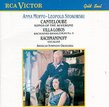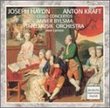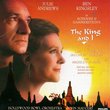| All Artists: Wolfgang Amadeus Mozart, Carlo Maria Giulini, Giuseppe Taddei, Elisabeth Schwarzkopf, Philharmonia Chorus & Orchestra, Anna Moffo, Fiorenza Cossotto, Eberhard Wächter, Piero Cappuccilli, Elisabetta Fusco, Renato Ercolani Title: Mozart - Le nozze di Figaro / Taddei · Schwarzkopf · Moffo · Cossotto · Wächter · Giulini Members Wishing: 0 Total Copies: 0 Label: EMI Classics Release Date: 5/7/1990 Genre: Classical Styles: Opera & Classical Vocal, Historical Periods, Classical (c.1770-1830), Modern, 20th, & 21st Century Number of Discs: 2 SwapaCD Credits: 2 UPCs: 077776326627, 077776326658 |
Search - Wolfgang Amadeus Mozart, Carlo Maria Giulini, Giuseppe Taddei :: Mozart - Le nozze di Figaro / Taddei · Schwarzkopf · Moffo · Cossotto · Wächter · Giulini
 | Wolfgang Amadeus Mozart, Carlo Maria Giulini, Giuseppe Taddei Mozart - Le nozze di Figaro / Taddei · Schwarzkopf · Moffo · Cossotto · Wächter · Giulini Genre: Classical
|
CD DetailsSimilarly Requested CDs
|
CD ReviewsA Great Performance! Haas | Brooklyn | 09/14/2001 (5 out of 5 stars) "When shopping for a 'Figaro,' you could be coerced into buying a more expensive set. Don't be: Giulini's lovely recording, a largely underrated gem of Mozart opera, is certainly on par with the his celebrated 'Don Giovanni,' and is an excellent first choice. One must keep in mind, though, that with such a renowned opera as 'Figaro' there's no such thing as a perfect cast, and if there is, I would lay a wager the perfect conductor isn't in attendance. There are, in my view, four really outstanding 'Figaros.' Your choice should be based on personal preference for singers. One is Erich Kleiber's 1955 account, which has been critically acclaimed since its debut, and is Amazon's pick. An excellent, though slightly overrated, first choice. Karajan's 1952, now a GROC, is a stunning performance (my personal favorite), but, admittedly, a bad first choice. And there's Bohm's, which is a darn good recording, but not without its flaws. This Giulini recording with the Philharmonia Orchestra is a beautiful performance with an Italian flair, a benchmark addition to the catalogue. And here's what I think of it: Eberhard Waechter and Elisabeth Schwarzkopf leave all other Count/Rosine pairings in the shade: Waechter, especially, is magnificent, BY FAR the best Count on disc. Schwarzkopf is much better on Karajan's 1952 set, but nobody understands this character like she does: the mere utterance of "E Susanna non vien!" before she sings the "Dove sono" bit gives me chills. Janowitz, her competition, could make the harshest of German phrases seem gentle, and while her voice is equally ravishing in the Italian tongue, confidence of character suffers. Duets like the Shawshank-plagued "Canzonetta sull'aria," for example, should be a contest of wit and mischievousness, not of sheer vocal beauty. Enter Schwarzkopf, who has a fine balance of both. Giuseppe Taddei's best role was Leporello, in which he was unforgettable, but his forced buffo voice doesn't always work for Figaro; he's very thoughtful, however, and is, as always, a great complement to Waechter. His Susanna is Anna Moffo, who is overall my favorite on disc. She's totally involved emotionally and definitely the most adorable one you'll find anywhere. There are some negative points: Troyanos, Johnson, and Lagger -- all on Bohm's -- are much better supporting characters than Giulini's crew. The sound is also stronger on Bohm's set, made some seven years after this one. Giulini's conducting, however, far surpasses Bohm's, and is at least the equal of Erich Kleiber. The Philharmonia of the early 1960s is glorious -- as they are for Klemperer's 'Magic Flute.' Also, there are some cuts to Act IV, but it doesn't bother me one bit. And what's even better: the price is a steal! I will say without reservation that this would make a fine first 'Figaro' in anyone's collection; but I'll also say that owning only one version of this divine opera is almost criminal, so I'd say get this Giulini and the Kleiber -- but more, if possible!" No playing for laughs here. John Austin | Kangaroo Ground, Australia | 12/29/2002 (5 out of 5 stars) "If this opera features in everyone's top ten favourites, then the respective merits of some likely candidates for purchase should be discussed and shared on the internet. I have never felt that this forty-year-old set shows its age in any way. It boasts the best recording producer (Walter Legge) and the best recording venue (Kingsway Hall, London) of their day. Conductor Giulini is scrupulously loyal to the score. Listen carefully, and you'll hear that distinctions between mezzo forte and forte are observed. There is, moreover, no playing for laughs here. Mozart's music and Da Ponte's libretto are allowed to speak for themselves. Access to the libretto is made even easier by the inclusion of a nice fat booklet with this 2 CD set, providing the original text with an English translation, and a synopsis in English, German and French. Access to the music is enhanced by excellent recording sound quality. The potential of stereophonic recording is successfully exploited also, helping us to hear, as it were, characters moving around on a stage - being locked in wardrobes, jumping out of windows, etc. Enshrined in this recording are at least two immortal performances. Elisabeth Schwarzkopf's countess is vocally and histrionically ideal. Giuseppe Taddei's Figaro is the other stand out performance here - even if he opts for a higher alternative C at the end of his Act 1 aria, instead of the one Mozart wrote. Anna Moffo provides a lovely "Deh vieni non tardar" in the last act, singing with even legato without too much portamento. It seems unwise to nominate stand out performances here, however. Rarely has an opera recording been so well cast. All of which, I hope, suggests that this is a "Figaro" that will provide unconditional and repeated enjoyment. It is also a bargain "Figaro". By omitting 2 of the 29 numbers Mozart provided for the original Vienna production - unimportant Act 4 arias for Bartolo and Marcellina - everything else fits perfectly onto just 2 CDs." A "Figaro" with many special distinctions Santa Fe Listener | Santa Fe, NM USA | 03/20/2006 (5 out of 5 stars) "This Figaro from 1959 has been unassailable for nearly half a century, so there's no reason to heap on more praise. But I took it out today after reading that Anna Moffo, who sings Susannah here, died this week at the shockingly early age of 73. She was greatly underrated, especially toward the end of her career. Her singing is a dramatic asset in this Figaro, not least becasue she and Taddei, both native speakers of Italian, do so much more with the recitatives than other couples.
I am not usually a fan of bassos singing the role of Figaro, but of that type, Taddei is the most flexible; he's full of wit and anger both, and believably a servant (unlike Siepi on the famous Erich Kleiber set for Decca, who seems like an aristocrat in disguise). Moffo is more sharp-witted and less coy than other Susannahs, which I think is also a help. Instead of singing in a generic Mozart style, this Figaro and Susannah sound like two disntinct personalities. (Nobody in the cast tries to sound dainty and refined, thank goodness.) The third distinction of this set is Giulini's conducting. At his best this conductor could impart inner life to every line in the score, as he does here. There are no inert accompaniments; everything sparkles with real, not artificial animation. EMI gave this recording such good sound that they have never remastered it, which is amazing in itself. The sonics have held up quite well, although I had forgotten until listening today that the solo arias employ a lot of the resonance in Kingsway Hall, coming across as a touch cavernous. No matter abuot that--this recording will ssurvive as long as people are listening to Mozart's masterpiece." |

 Track Listings (32) - Disc #1
Track Listings (32) - Disc #1


